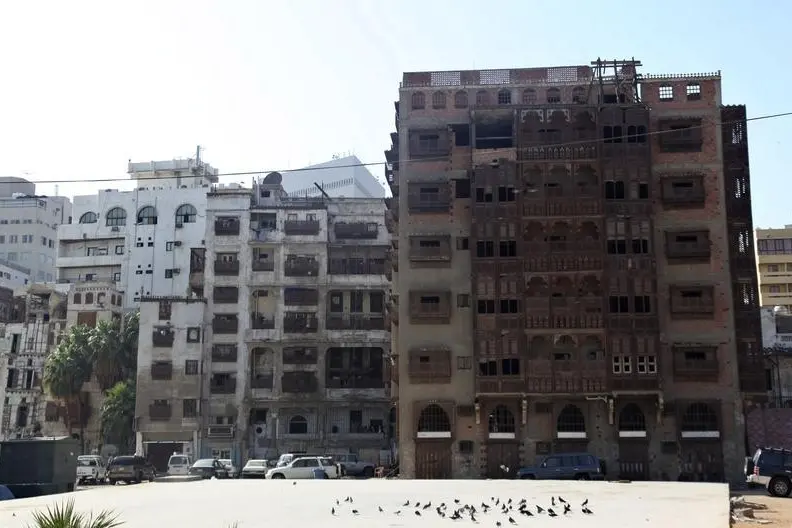PHOTO
Expat levy and regulations leave apartments empty Landlords fear substantial income losses come July
Irfan Mohammed
For the first time in many decades, residential rents in most neighborhoods of Jeddah are starting to drop as landlords struggle to fill housing units vacated by laid-off expatriates. The displays of “For Rent” signs have been increasing in almost every corner of the city, indicating an imminent free fall in the real estate sector.
The residential rental market is under pressure in recent months as many business firms are adjusting to market conditions and reducing headcounts to cut costs. And due to the slowdown in economic growth, demand for rented accommodation has been decreasing, according to experts.
The tax on white land and also service charges on dependents of expatriates will further plunge the property market in coming months. Many investors are abandoning construction of new buildings in the middle owing to the sluggish demand.
Over the last couple of years, a large supply of new apartments in Jeddah was absorbed quickly due to a sustained growth in the expatriate population and migration of Saudis from other areas to the city.
Several real estate brokers told Saudi Gazette that the market is expected to witness a drastic decline in July when the new service fees are set to be imposed on dependents of expatriates.
The new rent agreements have fallen above 50 percent whereas the sale or purchase of property is almost at standstill in the city, according to sources in the real estate sector.
The rents have fallen by 10 to 20 percent compared with last year for two- and three-bed room apartments and no sight of new tenants in vacated apartments makes landlords nervous, according to the sources.
However, most landlords are reluctant to adjust to prevailing market conditions by reducing rent and lease out, fearing it would affect the rent level of existing tenants.
“We have some vacant apartments for rent and there are few prospective tenants. Compared with previous years, the number of people approaching us is less and they even quote less rent, which we can’t accept for now,” Abdulaziz Ammari, a real estate consultant in Al-Rawdah district, told Saudi Gazette.
“If we accept the lower rent considering the prevailing market situation from a new tenant, then it would be difficult for us to maintain the rent level with our old tenants,” he pointed out.
He said many Arab expatriates prefer the area because of its proximity to business locations and schools. “Generally there is no scope for vacant houses in the area as expat tenants used to reserve months in advance. However, now there is no such demand,” Ammari said.
Hafiz Abdul Kareem, the watchman of a building in Al-Rawdah, said he has been working there for the last 27 years and it is for the first time he has been witnessing such a grim situation for renting.
“In our building there is always advance reservation for any empty apartment but for the first time we are having three apartments vacant for several months,” said Gulam Ali, caretaker of a large residential building in Safa district.
The rents in Rehab and Aziziah districts, most sought by Indian and Pakistani expatriates, remain static. But many real estate consultants opined that the actual position would be known only after July. They said they hardly received any inquiries from new tenants in the last couple of months.
The appearance of a “For Rent” banner on a building in a prime location of Aziziah district, which is popular among Indian expatriates, has surprised many because news of any vacant apartments in the complex hardly comes out.
Many Indian and Pakistani expatriates said their landlords are no longer pressing for an increase in rent that they had been doing for the past couple of years. However, they emphasized their current rents are not decreased.
A large number of residential compounds for laborers and building complexes in Rahmaniya and Salehiya districts along the Haramain Highway also remained vacant as many of the workers left the Kingdom for good after losing jobs.
© The Saudi Gazette 2017





















